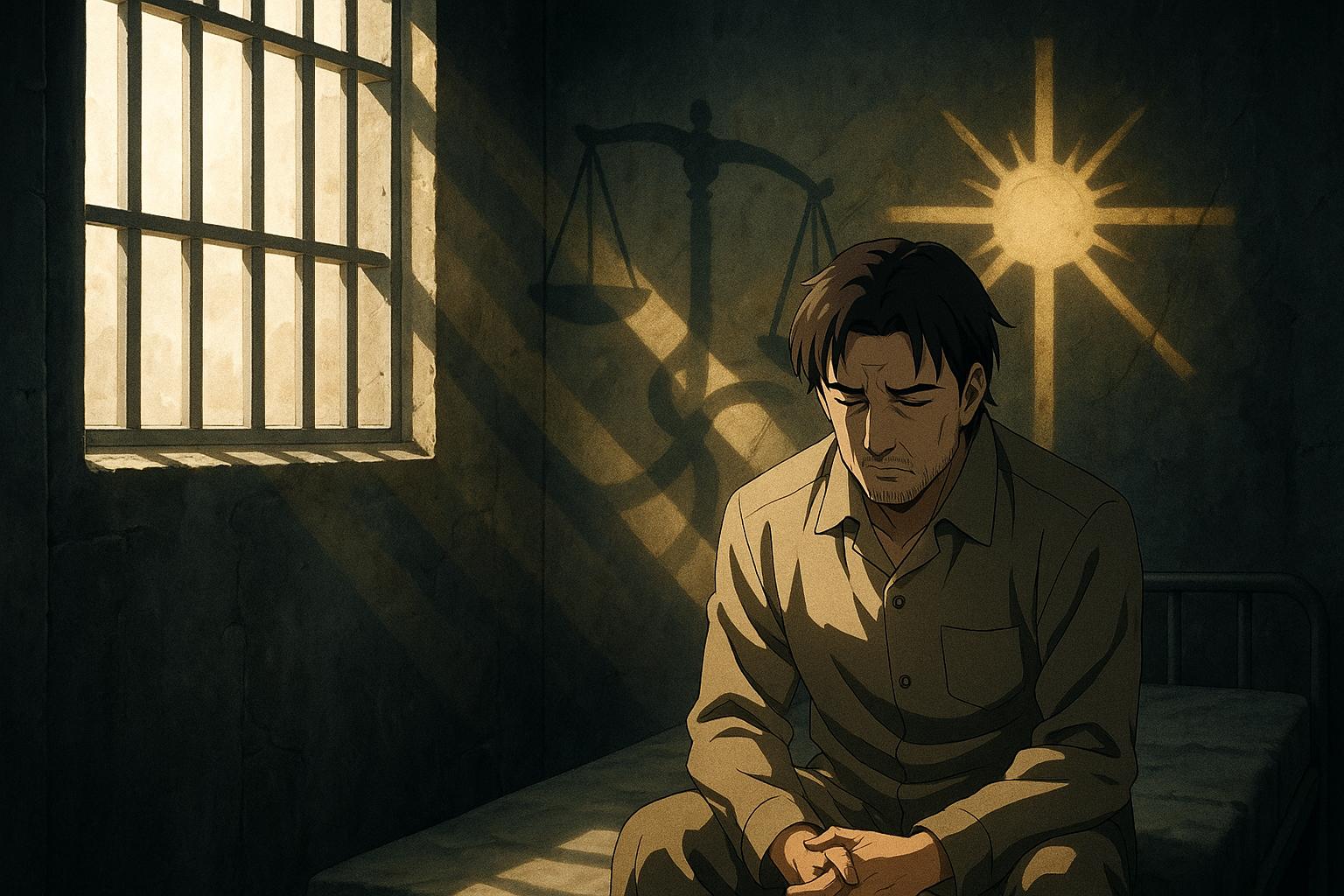Michael O'Brien, now 57, found himself in a nightmare that began when he was just 19. Arrested alongside two friends in November 1987, he faced accusations of murdering Phillip Saunders, a 52-year-old newsagent in Cardiff, who was brutally attacked with a shovel in his own garden. Despite lacking forensic evidence linking O'Brien and his co-defendants to the crime, all three were convicted of murder and violent robbery in a trial that raised significant concerns about the integrity of the justice process.
The aftermath of the trial proved devastating for O'Brien and his co-defendants. Charged based on the dubious testimonies of his co-accused, O’Brien’s life spiralled into chaos. He maintained his innocence throughout his time in prison, where he experienced what he described as a hellish existence filled with psychological trauma. During his 11 years of wrongful incarceration, he encountered notorious criminals and witnessed horrifying acts, including violence and death. This harsh environment contributed significantly to his ongoing battle with PTSD, leaving him with deep emotional scars.
O’Brien’s legal nightmare took a turn in 1998 when the Criminal Cases Review Commission (CCRC) found substantial issues with the initial investigation and trial. Hall, O'Brien's co-defendant whose testimony had originally incriminated them, was revealed to have been suffering from a personality disorder that may have influenced his confession, which he later retracted. This finding led to O'Brien's release on December 22, 1999, yet the scars of his unjust imprisonment lingered.
His story reflects a broader issue within the UK justice system, particularly concerning miscarriages of justice. Recent developments, including the release of Peter Sullivan after 38 years for a crime he did not commit, highlight the systemic failures that have long plagued the judicial process. O’Brien noted with empathy the challenges Sullivan now faces, remarking, "You get mixed emotions because you are glad that your name is cleared, but then the anger follows because you wonder why people didn't know that you were innocent."
Despite being awarded one of the largest out-of-court settlements ever from a Welsh police force—£300,000—O’Brien remained critical of compensation policies that penalise the wrongfully convicted. In his case, £37,000 was deducted for "food and water" during his imprisonment, showcasing the stark disparities in the treatment of those exonerated compared to the losses they've endured.
Beyond his fight for justice for himself, O’Brien has taken up the mantle of advocacy, co-founding the Miscarriages of Justice Organisation. This initiative aims to support those wrongfully convicted and to push for comprehensive reforms in the judicial system. He understands the pressing need for a fair system that protects the innocent, stating, "It’s all about empowering others to get control of their life."
Through his continued campaign for justice, both for Phillip Saunders and other miscarriages of justice victims, O’Brien seeks not only to find the truth behind the murder that changed his life but also to inspire those caught in similar predicaments. Notably, he had the opportunity to meet with Saunders' family members, affirming his commitment to unearthing the real perpetrator and righting the wrongs that have persisted over decades.
His experiences compel him to reach out to young offenders, hoping to guide them away from a path that can lead to destruction—both personally and legally. "If I didn't go out that night, none of this would have happened, and I could've been a proper father," he reflects somberly, revealing the profound cost of his wrongful conviction on his family life.
As O’Brien continues to navigate the aftermath of his ordeal, he remains resolute in his quest for justice—not just for himself, but for all those who have suffered due to the failings of a system meant to protect and serve. In a poignant reminder of his humanity, he emphasises, "I want the real killer caught... to find the real killer is my fight, but also to find justice for me."
Reference Map
- Paragraphs 1, 2, 3, 4, 5, 6, 7
- Paragraph 2, 3
- Paragraph 5
- Paragraph 5
- Paragraph 5
- Paragraph 1, 5
- Paragraph 1, 6
Source: Noah Wire Services
